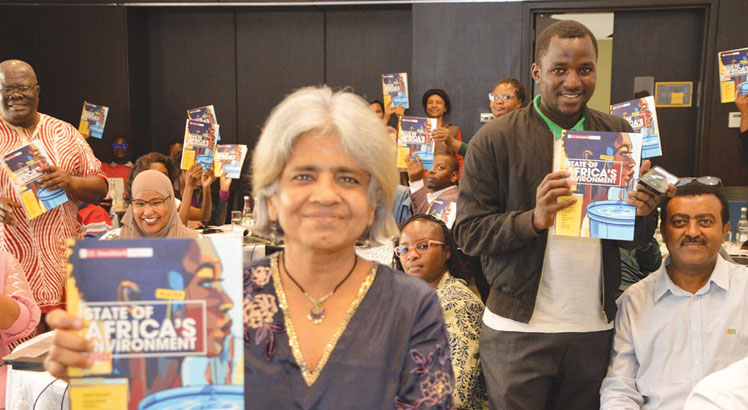Poor hospital hygiene costs Mw K418bn annually
Getting treatment for a particular ailment is a costly exercise, but it has emerged that patients are prone to associated infections while receiving treatment in public hospitals.
Malawi is estimated to be spending $246 million (about K418 billion) annually tackling healthcare associated infections (Hais) which patients acquire while receiving medical care, a new report has shown.
Released in Nairobi, Kenya on Monday, the 2024 State of Africa’s Environment report pegs the expenditure at 2.9 percent of the nation’s gross domestic product (GDP) and beats six other sub-Saharan countries whose Hais impact was assessed.
The report’s assessment builds on data from a study by WaterAid, an independent policy research institution, which focused on 2022 Hais infections. The research was concluded earlier this year.

“Among the seven countries, the proportion of GDP spent on treating Hais in 2022 was the highest in Malawi (2.9 per cent) followed by Zambia, Ghana, Uganda, Nigeria, Ethiopia and Mali,” reads the report in part.
The report is a collaborative project of India-based non-governmental organisation the Centre for Science and Environment (CSE) and Kenya-based Media for Environment, Science, Health and Agriculture.
In total, it says treatment of Hais is costing the sub-Saharan region $8.4 billion annually.
“This is equivalent to the total amount needed to provide universal, basic clean water and waste services in healthcare facilities in the 46 least developed countries,” the report further reads.
Though Malawi’s expenditure surprised other countries under review, it was Nigeria which recorded the highest number of Hais cases having only spent 0.9 per cent of its GDP on treatment, the report says.
Malawi recorded an estimated 250 000 Hais cases, according to WaterAid.
The State of Africa’s Environment report, themed on water, says the highest Hais rates are found in intensive care units and neonatal or paediatric departments.
“A growing proportion of these infections are resistant to anti-microbial drugs, which means they are costlier to treat and take longer to recover from, leading to worse health outcomes for patients,” the authors add.
Quoting WaterAid, the dossier states that at least 50 percent of these medical costs could be averted by improved hand-washing facilities, clean water and decent toilets.
The researcher, Guy Hutton, a senior economist and financing specialist working in water, sanitation and hygiene, is quoted in it saying: “It should be the number one priority of health systems around the world to combat healthcare associated infections.
“In the African countries covered in this study, at least one in every 10 patients admitted to hospital is unnecessarily burdened by an additional infection circulating within the hospital.
“These preventable infections impact patients, their families and healthcare providers by causing additional illness, prolonged hospital stay, potential disability, and sometimes death, and they lead to significant excess expenditures and absorb valuable time of healthcare professionals that could have been used to treat other patients.”
While the Ministry of Health spokesperson Adrian Chikumbe and Principal Secretary for Health Samson Mndolo had not responded to our separate questionnaires, health activist Maziko Matemba described the findings as a wake-up call to the government.
He said in a response to our questionnaire: “What it means is that Malawi has a long way to go in terms of introducing mechanisms of averting infections whether at both facility and community level.”
The measures, he added, can help the health sector save resources which could be invested in other areas.
“Government needs to learn from the report as to what has necessitated this cost in our health facility budget,” Matemba said.
The report also tackles a wide range of related subjects. They include water insecurity, urban water poverty, disease burden and rainwater harvesting.
Presenting the report, CSE director general Sunita Narain, said: “Climate change is adding to the water crisis and heat stress in our world. “But climate change is not the reason for the water crisis – it is just an exacerbating factor. Our water crisis is about our inability to build an affordable system of water management for people today.”




